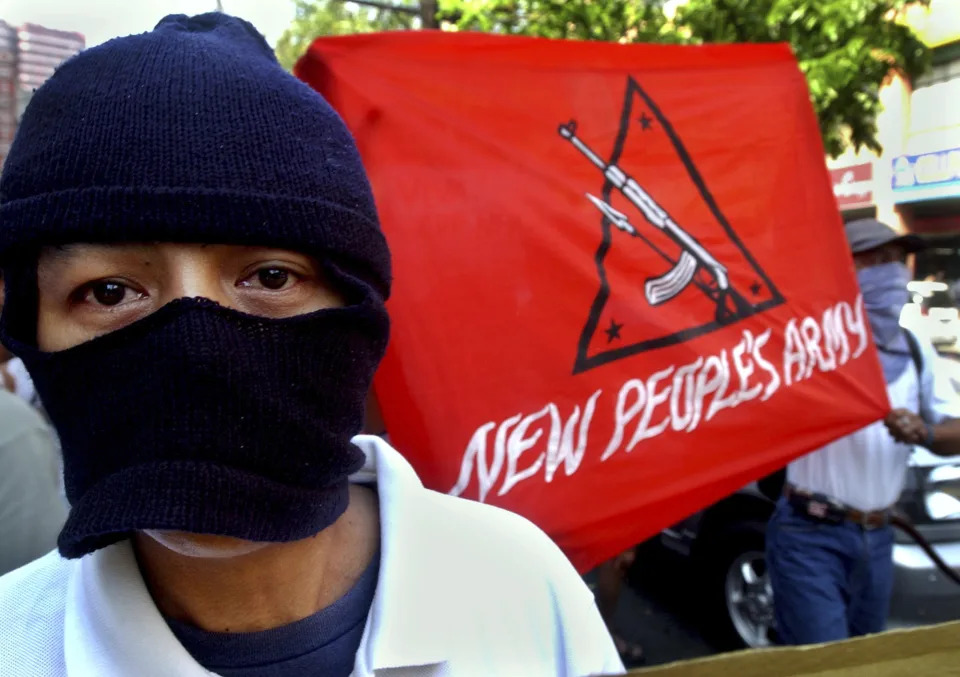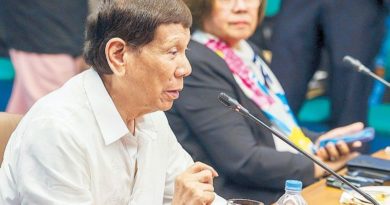ASEAN POLITICS-INSURGENCY | Philippine government and communist rebels agree to resume talks on ending their protracted conflict
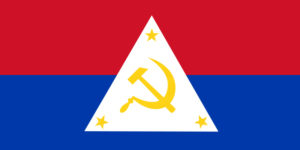
COPENHAGEN, Denmark (AP) — The Philippine government and the country’s communist rebels have agreed to resume talks aimed at ending decades of armed conflict, one of Asia’s longest, Norwegian mediators announced Tuesday.
High-ranking delegations from both sides met in the Norwegian capital of Oslo last week and agreed to a “common vision for peace” that sought to address key obstacles, according to Norway’s foreign ministry.
Norwegian Foreign Minister Espen Barth Eide said the deal was signed at “an important signing ceremony” on Thursday but was only made public on Tuesday.
FILE – Communist New People’s Army (NPA) rebels hold weapons in formation in the hinterlands of Davao, southern Philippines, on Thursday, Dec. 26, 2013. The Philippine government and the country’s communist rebels have agreed to resume talks aimed at ending decades of armed conflict, one of Asia’s longest, Norwegian mediators announced Tuesday, Nov. 28, 2023. (AP Photo, File)
Since 1969, the Communist Party of the Philippines and its armed wing, the New People’s Army, have fought successive Philippine governments. The rebellion, which opposes the Philippines’ close ties with the United States and wants left-wing parties to be part of the government, has left about 40,000 combatants and civilians dead.
The fighting has also stunted economic development in the impoverished countryside. The military says a few thousand Maoist insurgents continue to wage the insurgency to this day.
Past administrations had engaged in intermittent peace negotiations with the rebels. Former President Rodrigo Duterte ended peace talks in March 2019, accusing the rebels of attacks on police and military outposts. The U.S., the European Union and the Philippine government consider the New People’s Army a terrorist organization because of its attacks targeting civilians.
FILE – A masked protester joins a rally on the commemoration of the 36th anniversary of the Communist Party of the Philippines, New People’s Army, in a busy shopping district in Manila on Sunday Dec. 26, 2004. The Philippine government and the country’s communist rebels have agreed to resume talks aimed at ending decades of armed conflict, one of Asia’s longest, Norwegian mediators announced Tuesday, Nov. 28, 2023. (AP Photo/Aaron Favila, File)
Last year, Ferdinand Marcos Jr. took office as the new president and appeared more open to peace talks. He granted amnesty last week to several former rebels, including those from NPA, for offenses including rebellion, sedition and illegal assembly, but not those suspected of kidnapping, killing, terrorism or similar serious crimes.
Marcos’ namesake father declared martial law in the Philippines in 1972, imprisoning thousands of suspected rebels and communist supporters, until he was ousted in a 1986 popular uprising.
The Philippine government and the National Democratic Front of the Philippines, the umbrella group representing the rebels, said in their joint statement that they “recognize the need to unite as a nation in order to urgently address these challenges and resolve the reasons for the armed conflict.”
They “agree to a principled and peaceful resolution of the armed conflict.”
“We envision and look forward to a country where a united people can live in peace and prosperity,” the statement said. The text was the result of several informal discussions between the sides held in the Netherlands and Norway since the beginning of 2022.
”I was happy to hear the parties’ decision to finally end the more than 50-year-long conflict in the Philippines,” said Barth Eide, who witnessed the signing. He said that ”extensive work” remained and that Norway “looks forward to continuing to assist the parties towards a final peace agreement.”
Special Adviser to the President, Minister Antonio Lagdameo, front row third from left, Norwegian Foreign Minister Espen Barth Eide, fourth from left, and Luis Jalandoni of the Communist Movement (NDFP), third from right, sit with their delegations and the Norwegian facilitation team members at Oslo City Hall, on Thursday, Nov. 23, 2023. The Philippine government and the country’s communist rebels have agreed to resume talks aimed at ending decades of armed conflict, one of Asia’s longest, Norwegian mediators announced Tuesday, Nov. 28, 2023. High-ranking delegations from both sides met in the Norwegian capital last week and agreed to a “common vision for peace” that sought to address key obstacles, according to Norway’s foreign ministry. (Mathias Rongved/Norwegian Ministry of Foreign Affairs via NTB)
Rebel negotiator Julieta De Lima did not say when formal talks will start. She said issues to be addressed include the detention of rebel “peace consultants,” safety guarantees and immunity from arrest for negotiators, release of what the rebels refer to as political prisoners, and the removal of the terrorist designation for the communist movement.
The previous rounds of talks had collapsed over such demands.
In Manila, Presidential Adviser Carlito Galvez Jr. told reporters that despite the agreement, the government’s anti-insurgency operations will continue.
Defense Secretary Gilbert Teodoro said it would be up to local officials to decide if they will declare a local, Christmas cease-fire. The head of the Philippine Armed Forces, Gen. Romeo Brawner Jr., said it meant the military could shift its focus to external defenses, referring to territorial tensions with China in the South China Sea.
.

@[email protected]

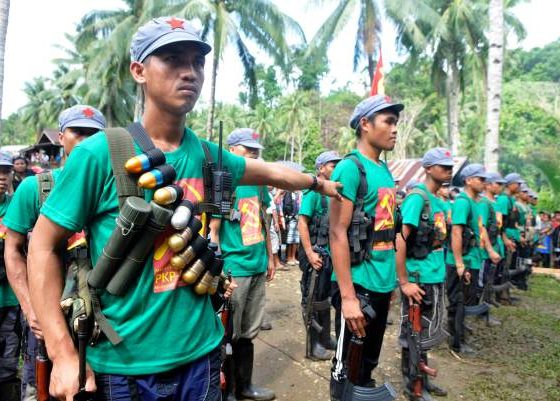

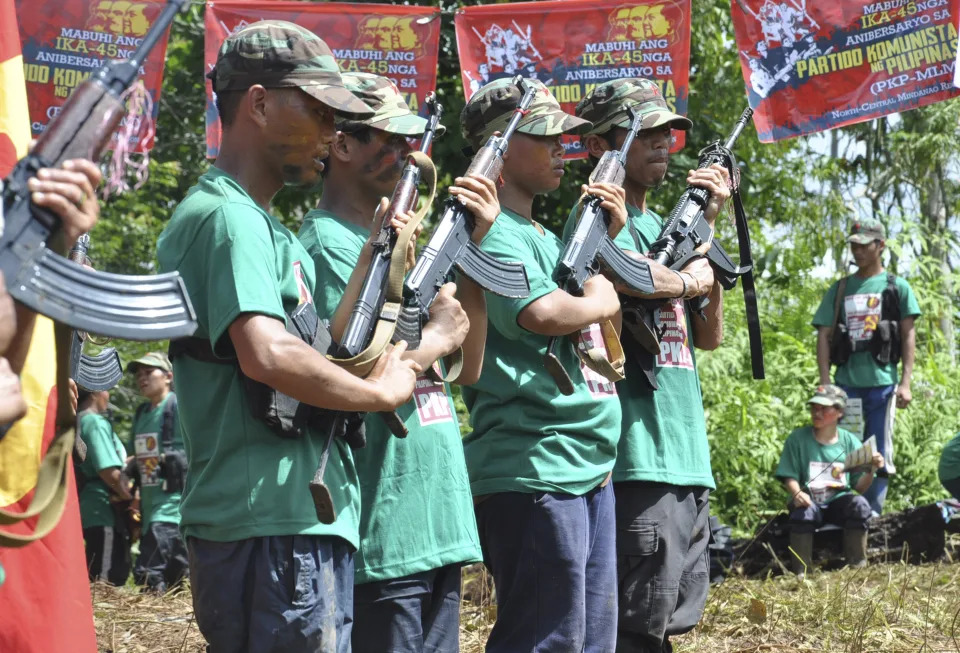
 Memento Maxima Digital Marketing
Memento Maxima Digital Marketing